Intersections | Cross-sections
Intersections | Cross-sections is an interdisciplinary conference organized by and for graduate student scholars, artists and activists through the organizing efforts of the Communication and Culture Graduate Students Association (GSA).
Next conference: March 2026
Since 2002, the conference has attracted graduate students from around the world to present papers and participate in the various panels and workshops. While the annual conference theme changes, the topics generally reflect the nature of our program and the work it nurtures.
As scholars doing interdisciplinary work in a joint program, we are especially interested in encountering and generating significant intersections of art, activism and academia. The conference generally reviews proposals for not only papers, but also creative works, media submissions and poster presentations. The conference is normally held in the spring.
Themes and Speakers
The theme, “Currents of Change: Media, Activism, and Cultural Transitions,” invites broad interpretations of how media participates in shaping social, cultural, and environmental transformation. Panelists explore popular media platforms, mass movements, or the many ways media enacts change at scales both large and small, from global systems to everyday interactions. Participants are encouraged to trace currents of change across past, present, and future contexts, reflecting on the complex flows that connect human and non-human worlds.
Currents also evoke connections and relationality, resonating with theories such as Latour’s actor-network theory, Haraway’s situated knowledges, and Indigenous ontologies that predate and inform these frameworks. The conference aims to explore these currents through diverse disciplinary and methodological perspectives, fostering reciprocal communication and cross-cultural understanding. By examining how media circulates, influences, and responds to change, IS|CS 2026 provides a space for students to engage creatively and critically with the forces shaping our world.
The theme of IS|CS 2025, Interrogating the Lifeworld, invites participants to critically examine the lived experiences that shape our understanding of the world. Drawing from Jürgen Habermas' concept of the "lifeworld," the conference encourages exploration of how societal systems—such as culture, politics, and technology—intersect with everyday life. By challenging the assumptions that underpin our social structures, we aim to imagine alternative futures and ways of being, fostering dialogue on the possibilities for social change, decolonization, and resistance in our current geopolitical climate.
Conference Programming
| Time | Room A | Room B |
| 9:00 - 9:45 AM | Introductory Remarks and Keynote Address Dr. Jason Boyd: "The Ludic Edition: Playful Futures for Digital Scholarly Editing" |
|
| 9:45 - 10:00 AM | Refreshment Break | |
Session 1 |
1A: Haunting, Memory and Affect in the Digital World | 1B: Navigating, Depicting, and Empowering Dis/Ability |
| Session 2 11:20 AM - 12:40 PM |
2A: Transforming Education, Research, and Knowledge Production in the Digital Era | 2B: Screening Power, Resistance, and Consumption: Media Narratives in a Globalized World |
| 12:40 - 2:00 PM | Lunch and Artist Talks | |
| Session 3 2:00 - 3:20 PM |
3A: Platforms, Politics and Power | 3B: Borders and Belonging: Critical Imaginings of Space, Place and Migration |
| 3:20 -3:40 PM | Networking and Refreshment Break | |
| Session 4 3:40 - 5:00 PM |
4A: The Past, Present and Future of Creative Industries: Critical Perspectives on Capitalism and Culture | 4B: Entanglements of Influence, Identity and Relationality in Digital Networks |
| 5:00 - 5:30 PM | Closing Remarks | |
| 6:00 - 8:00 PM | SORCE Collective Closing Event - a hyperphantasic storytelling experiment End the day with a unique and immersive storytelling experience led by SORCE Collective (external link) , where participants co-create an evolving narrative through guided visualization and shared imagination. This interactive closing event fosters creativity, connection, and reflection—an inspiring way to wrap up the conference. |
|
The IS|CS 2024 conference, titled "Terms & Conditions: Rethinking Digital Literacy Futures," brought together scholars, practitioners, and students to critically examine the evolving field of digital literacy. This year’s fully virtual conference focused on digital ecosystems, human participation, and the implications of emerging technologies such as artificial intelligence (AI) on our digital lives. Themes of privacy, governance, identity, and equity were at the forefront of discussions.
Digital literacy, as first introduced by Paul Gilster in 1997, has expanded beyond the basic use of technology to encompass understanding complex digital landscapes and systems. As the digital world evolves, particularly with the increasing use of AI tools like ChatGPT, IS|CS 2024 encouraged participants to rethink the future of digital literacy. Scholars explored how digital participation, privacy, data, and identity intersect with technology.
The event featured four panels, each addressing key themes around digital literacy and the future of digital ecosystems.
| Time | Programming Guide |
| 9:00 to 9:15 AM | Opening Remarks With Co-chairs Destiny and Katayoon |
| 9:20 to 10:35 AM | Panel 1: The Power of the Digital: Privacy and Resistance
|
| 10:35 to 11:40 AM | Panel 2: The Digital as a Tool
|
| 12:00 to 1:15 PM | Panel 3: Digital Literacies
|
| 1:20 to 2:45 PM | Panel 4: Digital Identities and Citizenships
|
| 2:45 to 3 PM | Closing Remarks With Co-chairs Destiny and Katayoon |
Entitled “Becoming You(th),” IS|CS 2023 will explore the theme of youth culture, identity and creative expression in precarious times. Organized by students from the Joint Graduate Program in Communication & Culture at York University and Toronto Metropolitan University, #ISCS2023 will bring together graduate students, emerging scholars and artists from a diverse array of backgrounds to broadly discuss what it means to be young in today's complex, rapidly-changing world.
Intersections Keynote: TMU Creative Industries Professor, youth culture researcher and author Dr. Miranda Campbell. Professor Campbell will share her research trajectory with youth and creative work, while offering activities to develop research practice attuned to emergence with care.
Keynote: Youth and Emergence, Research and Care Ethics
Given the challenges of the creative industries' work environment, what pathways are emerging from youth cultural producers? What forms of care are materializing, and what does it mean to research with care? In this keynote lecture and workshop, Dr. Miranda Campbell will share her research trajectory with youth and creative work and offer activities to develop research practice attuned to emergence with care.
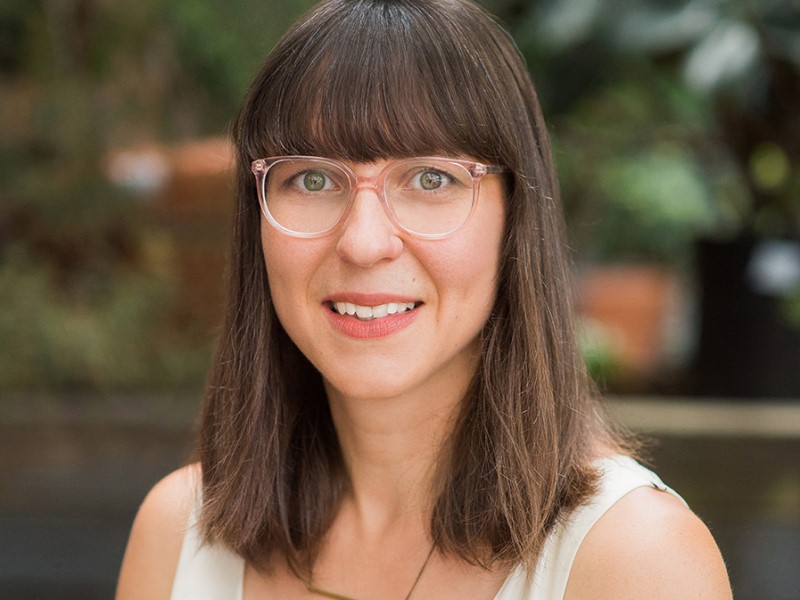
Cross-sections: Evening social mixer and art symposium featuring a variety of youth-centric artwork/creative research, including film, photography, fashion, sound exhibits + a special live musical performance from emerging singer/songwriter & producer Elisha Cooper.
This year’s conference theme is The Politics of Sound. This conference invites papers and artworks that consider the potential uses and dynamics of the sonic, reflecting on what we transmit through practices of sound and listening in relation to the arts, media, geography, history, and technology.
Dylan Robinson is a xwélmexw (Stó:lō/Skwah) artist, curator and writer, as well as an the Canada Research Chair in Indigenous Arts at Queen’s University. In the Fall of 2022 he will begin a new appointment as Associate Professor in the School of Music at the University of British Columbia. Dr. Robinson’s work spans the areas of Indigenous sound studies and public art, and takes various forms including writing (from event scores to autotheory), gatherings, and inter-arts creation. This range of forms offers him a space to integrate the sonic, visual, poetic and material that are inseparable in Stó:lō culture.
Intersections keynote address: Public Art's Human and Non-Human Interpellation
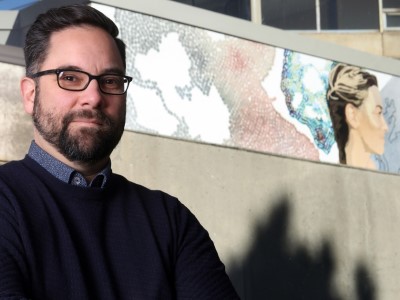
Norah Lorway is a composer, programmer and artificial intelligence researcher/professor at X University working on the intersection of sound, computer science and digital healthcare. Dr. Lorway has been a part of the live coding and algorave movement in the UK (and beyond) since the early 2010s and has performed around the world in venues and festivals such as Fortune Sound Club (Vancouver), Norberg Festival (Sweden), EarZoom Festival (Slovenia), Corsica Studios (London UK), Incubate Festival (Netherlands). They also have worked on film soundtracks such as Anthropocene: The Human Epoch which premiered at TIFF (2018), Sundance (2019) and was nominated for a Cinema Eye Honours Award “Outstanding Achievement in Original Music Score” in 2020. Norah’s current research focuses on artificial intelligence and live coding/music, digital health care, particularly the use of immersive and artificial intelligence technologies to support and assist with various psychiatric and neurological disorders and issues. Dr. Lorway is based between the UK and Canada, working full time in academia.
Cross-sections keynote performance.
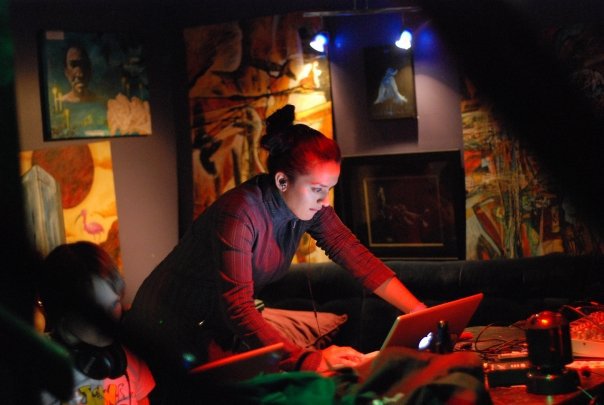
This year’s theme is Futurities. Let’s engage in this topic in all its multiplicity and in its most boundary-breaking forms, going beyond and actively protesting the hegemonic and dominant systems currently in place.
Dr. Cheryl Thompson is an Assistant Professor at Toronto Metropolitan University in the School of Creative Industries. She is the author of Beauty in a Box: Detangling the Roots of Canada’s Black Beauty Culture (2019) and Uncle: Race, Nostalgia, and the Politics of Loyalty (2021). In 2020, she assumed the role of co-director of The Studio for Media Activism and Critical Thought (SMACT), a laboratory for some of Canada’s most compelling media scholars, artists, and activists. Dr. Thompson’s academic essays have appeared in Emergent Feminisms: Challenging a Post-Feminist Media Culture; the Journal of Canadian Studies; Canadian Journal of History Annales canadiennes d'histoire (CJH/ACH), Feminist Media Studies, and Fashion Studies. Dr. Thompson is currently researching Canada's history of blackface performance funded through a SSHRC-Insight Development Grant, and a SSHRC-Connection Grant, in collaboration with Pink Moon Studio, she is co-producing a feature documentary film based on her research. In addition to her academic writing, Dr. Thompson is a columnist with Herizons, Canada's leading feminist magazine. She is also a frequent contributor to The Conversation, Spacing and Zoomer, with one of her recent works appearing in the New York Times.
Keynote address: Towards a Black Futurity: Moving Beyond Aesthetics in Media
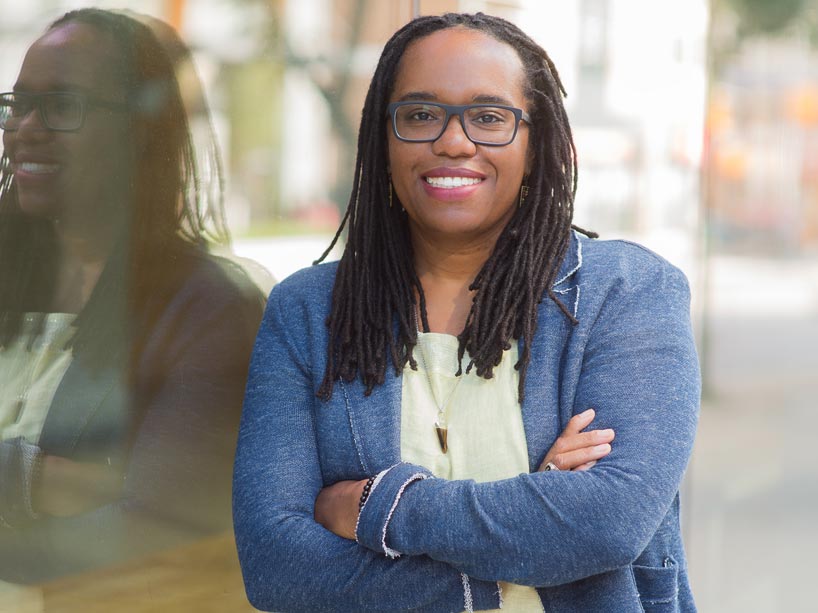
Lauren Dwyer's research focuses on the intersection between communication studies, human-robot interaction, and mental health. Under the guidance of Dr. Frauke Zeller, she has developed a communication model for a socially-assistive robot for individuals with anxiety. Her current research examines the cultural implications of socially-assistive robots and the development of a robot companion for individuals with mood disorders. She currently holds research assistant positions at TMU and McMaster Universities - leveraging AI and robotics for healthcare communications.
Keynote address: Isolated Circuits: Designing Companion Robots for the Future of Loneliness
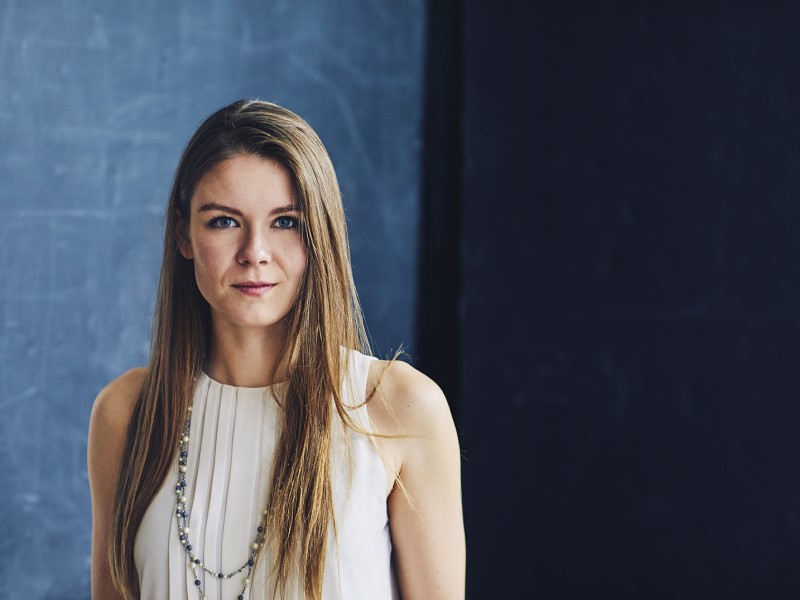
Intersections | Cross-sections 2020 theme was "Changing the Current". Let’s engage with, challenge, and transcend dominant and hegemonic narratives of contemporary society, to create a space to evaluate and reflect on the perspectives, bodies of knowledge, and stories that have been ignored, erased, or made invisible throughout history.
Dr. Haru Hyunkyung Ji is a media artist and co-creator of the research project “Artificial Nature”, exploring the subject of life in art through artificial life worldmaking: a form of computational generative art creating and evolving virtual ecosystems as immersive environments. She holds a Ph.D. in Media Arts and Technology from the University of California Santa Barbara and is an Assistant Professor in Integrated Media & the Digital Futures programs at the Ontario College of Art and Design University in Toronto, Canada. Her work has been shown at art festivals worldwide including SIGGRAPH and Digital Art Festival, conferences such as ISEA and EvoWorkshops, venues including La Gaite Lyrique, ZKM, CAFA, MOXI, Seoul City Hall, and the AlloSphere, and recognized in the international 2015 VIDA Art & Artificial Life competition and the 2017 Kaleidoscope Virtual Reality showcase.
Keynote address: Endless Current

Ryan J. Phillips is a PhD Candidate in Toronto Metropolitan University’s Communication & Culture program, where his research is focused on rhetoric, promotional cultures, and the political economy of communication. His recently completed dissertation project interrogates the rhetorical strategies of vegan and plant-based foods promotion, with an extended case study on the A&W Beyond Meat Burger campaign. He traces the cultural history of hamburgers and critically engages with the ongoing boundary work of ‘meat’ and ‘burger’ as food categories. Ultimately, he argues that Beyond Meat and other plant-based promotional cultures serve to reinforce the dominant social, cultural, and economic logic of consumer capitalism. In addition to food, he is also engaged in research examining advertising and audiences in sports media, as well as a new project that is investigating the promotional cultures of recreational cannabis in Canada.
Keynote address: The Meaning of ‘Meat’: Negotiating Discursive Boundaries in Vegan and Plant-Based Burgers
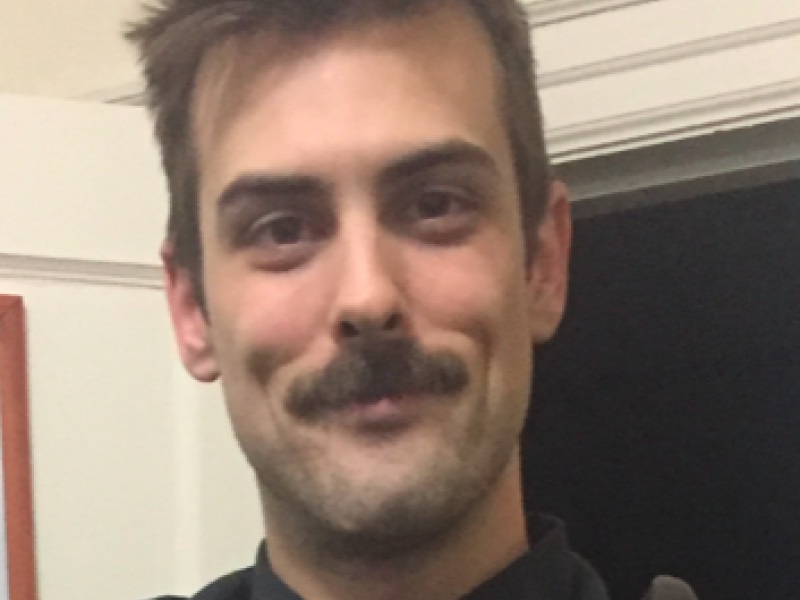
Dr. Maya Goldenberg is Associate Professor of Philosophy at the University of Guelph. Her research in philosophy of medicine and philosophy of science examines the intersection between science and values in both institutional and public domains in order to address the fundamental epistemic question: how do we know what to believe? She is currently writing a book on vaccine hesitancy and public understanding of science.
Keynote address: A War on Science? The Death of Expertise? Reframing the Problem of Vaccine Hesitancy and Refusal
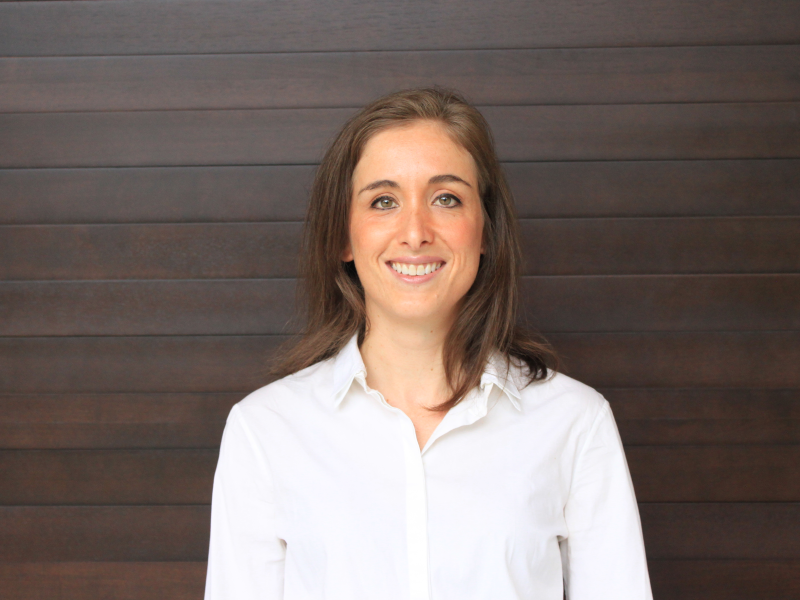
Thibault Biscahie is a doctoral candidate in the Department of Politics at York, where he specializes in political economy, international relations and comparative politics. He holds a Master’s degree from Sciences Po Lille and has also studied at the Université du Québec à Montréal and the Université de Provence. His doctoral research examines the election of Emmanuel Macron through a Gramscian lens and aims to understand the implications of Macron’s neoliberal policies and Caesarist governance for France. This research project also seeks to explore the recomposition of the European hegemonic order that Macron’s election could entail.
Keynote address: Rejection of Traditional Antagonisms and Radical Centre in an Era of Backlash: Perspectives from France and the European Union
Dr. Tanner Mirrlees is the Director of the Communication and Digital Media Studies program at the University of Ontario Institute of Technology (UOIT). Mirrlees’s current research focuses on the global political economy of the US Empire and communications, geopolitics and popular culture, work and labour in the cultural industries, and the nexus of the alt-right and social media. Mirrlees is the author of Hearts and Mines: The U.S. Empire’s Culture Industry (University of British Columbia Press, 2016), Global Entertainment Media: Between Cultural Imperialism and Cultural Globalization (Routledge, 2013), and numerous articles.
Keynote address: “Spaces of Empire: A Cognitive Map”
Treva Michelle Legassie is a PhD candidate and Adjunct Professor in the department of Communication Studies at Concordia University and the Assistant Director of the Speculative Life Research Cluster at Milieux Institute. Legassie’s work borrows from interdisciplinary methods and her background as a researcher, curator, artist, and ethnographer. Her writing has been published in PUBLIC Journal, Technoetic Arts: A Journal of Speculative Research, Open Cultural Studies, The Senses & Society, InterARTive, and AlterNative: An International Journal of Indigenous Peoples. She has also curated new media based exhibitions such as #NATURE (2016) and Influenc(Ed.) Machines (2015). Legassie holds an MA from OCAD University in Contemporary Art, Design and New Media Art Histories, with a focus in new media, and a BFA from OCAD University majoring in Art Criticism and Curatorial Practice.
Keynote address: “Mangles and Intersections: Feminist art-science laboratories and the ethics of care”
Dr. Michele Lacombe (Trent University): Dr. Lacombe's research is focussed on artistic and creative expression is often described as qualitative research by social scientists, and includes interdisciplinary, arts-based research methodologies informed by social science approaches. From a humanities standpoint, a wide range of theoretical and empirical frameworks are also available for addressing the place of Indigenous creative arts. What does it mean to say that stories matter? Indigenous women’s voices include many kinds of storytelling, from oral and written versions of family and community history to autobiography, life-writing, poetry, theatre and performance, fiction, and essays. I am interested in understanding relationships to place and nation as articulated in the arts.
Dr. Will Straw (McGill University): Will Straw is James McGill Professor of Urban Media Studies. He has been Visiting Professor at the Open University (Budapest), the National Autonomous University of Mexico and the University of Belgrade. He is also Adjunct Research Professor in the Institute for Comparative Studies in Literature, Art and Culture, Carleton University.
Professor Straw has a Bachelor degree in Film Studies, and postgraduate degrees in Communications Studies. Much of his work has dealt with the social and institutional dimensions of popular music, and with the development of the notion of music scene. He has a strong interest, as well, in histories of popular music in Montreal, Quebec and Canada.
In the area of cinema, Dr. Straw’s current research focuses on so-called “background players”, and the ways in which they offer a sense of social texture within films. He has a long standing interest, as well, in sensational print culture - in magazines and newspapers engaged in covering crime, scandal and celebrity gossip. Part of this interest centers on the lower levels of magazine publishing in New York City in the 1920s and 1930s. As well, he maintains a strong interest in the print culture of Mexico, and in crime-oriented periodicals in particular.
Louie Palu (Canadian photojournalist): Louie is an award winning documentary photographer and filmmaker whose work has appeared in festivals, publications, exhibitions and collections internationally. He is the recipient of numerous awards including two Pulitzer Center on Crisis Reporting Grants, 2011-12 Bernard L Schwartz Fellowship with the New America Foundation and Milton Rogovin Fellowship at the University of Arizona. He is well known for his work which examines social political issues such as human rights, conflict and poverty.
Dr. Jasbir K. Puar (Rutgers University): Jasbir K. Puar is Professor and Graduate Director of Women’s and Gender Studies at Rutgers University, where she has been a faculty member since 2000. Her most recent book is The Right to Maim: Debility, Capacity, Disability (2017) published with Duke University Press in the series ANIMA: Critical Race Studies Otherwise that she co-edits with Mel Chen. Puar is the author of award-winning Terrorist Assemblages: Homonationalism in Queer Times (2007), which has been translated into Spanish and French and re-issued in an expanded version for its 10th anniversary (December 2017).
Puar’s edited volumes include a special issue of GLQ (“Queer Tourism: Geographies of Globalization”) and co-edited volumes of Society and Space (“Sexuality and Space”), Social Text (“Interspecies”), and Women’s Studies Quarterly (“Viral”). She also writes for The Guardian, Huffington Post, Art India, The Feminist Review, Bully Bloggers, Jadaliyya, and Oh! Industry. Her writings have been translated into Polish, French, German, Croatian, Swedish, Norwegian, Portuguese, Japanese, Korean, Spanish, and Danish.
Dr. Sara Grimes (University of Toronto): Sara M. Grimes is Associate Professor in the Faculty of Information and Visiting Professor in Book and Media Studies at the University of St. Michael’s College at the University of Toronto. Her work is centered in the areas of children’s digital media culture(s) and play studies and critical theories of technology with a special focus on digital games. Her published work explores the commercialization of children’s virtual worlds and online communities, the articulation of a critical theory of digital game play, discussions of intellectual property and fair dealing in digital game environments, as well as the legal and ethical dimensions of marketing to children online. Her work has appeared in journals such as New Media & Society, The Information Society, Science Technology & Human Values, and Cultural Studies as well as in chapters in edited volumes and in various magazines and blogs. She has presented her research at a number of national and international conferences, workshops and festivals. Professor Grimes teaches courses on children’s cultural texts and artifacts, remix culture, research methods, and the social and cultural dimensions of social media technologies.
Dr. Sarah Sharma (University of Toronto): Dr. Sharma's research focuses on the relationship between technology and culture with a particular focus on social inequalities. One key strand of her research has focused on time as a site of social difference in a culture that is imagined to be technologically speeding up. She is currently at work on a new project that engages medium theory and feminist approaches to technology on such sites as algorithmic culture, the “sharing” economy, and the changing structures of care labour.
Dr. Brian Holmes (The European Graduate School and the University of Illinois at Chicago): Brian Holmes is a Paris-based art critic and activist who is known for his writing on the intersections of artistic and political practice. He received a PhD in Romance Languages and Literatures from the University of California, Berkeley. Holmes was the English editor of publications for Documenta X in 1997, was a member of the activist group Ne Pas Plier (Do Not Bend) from 1999 to 2001, and has recently worked with the French conceptual art group Bureau d'Études. Brian Holmes is a frequent contributor to the international listserve Nettime, and to the art magazines Parachute (Montreal), Springerin (Vienna), and Brumaria (Barcelona). In addition, he is a member of the editorial committee of the political journal Multitudes (Paris) and is a founder, with Bureau d'Études, of the new journal Autonomie Artistique (Paris). His essays have been gathered into three anthologies: Hieroglyphs of the Future: Art and Politics in a Networked Era (2002); Unleashing the Collective Phantoms: Essays in Reverse Imagineering (2008); and Escape The Overcode: Activist Art in the Control Society (2009).
Dr. Murray Pomerance (Toronto Metropolitan University): Professor Pomerance is editor of the "Techniques of the Moving Image" series at Rutgers University Press and the "Horizons of Cinema" series at SUNY Press, and co-editor, with Lester D. Friedman and Adrienne L. McLean respectively, of the "Screen Decades" and "Star Decades" series at Rutgers University Press. He is a frequent guest and commentator on media matters.
Dr. Ken Hillis (University of North Carolina): Dr. Hillis’ research focuses on: the politics of information technologies, with an emphasis on electronically mediated communication; the technologization of the “public sphere”; the relationships among identity, information, and the form a technology takes; and minority body politics and social change.
Dr. Tagny Duff (Concordia): My background is in media art with a focus on video, performance, biological art, net art, social sculpture and installation. My research/creation interests focus on visual culture, viral media, interdisciplinarity, art/sci production and collaboration, post-studio art practice, and the relation between art, science and technology. Topics of interest include surveillance and biopolitics; queer(ing) culture and temporality; posthumanisms and changing perceptions of bodies; waste creation and ecology; scale, duration and spacetime; performance, liveness and documentation.
Dr. Nick Dyer-Witheford (University of Western Ontario) is Associate Professor in the Faculty of Information and Media Studies at the University of Western Ontario. He is the author of Cyber-Marx: Cycles and Circuits of Struggle in High-Technology Capitalism, and co-author of Digital Play: The Interaction of Technology, Culture, and Marketingand Games of Empire: Global Capitalism and Video Games.
Dr. Penelope Ironstone-Catterall (Wilfred Laurier) is a faculty member in the Department of Communication Studies and Coordinator of the Program in Cultural Studies at Wilfrid Laurier University. Her central pedagogical and research interests concern the mechanisms deployed to resist difficult information - be it information regarding social difference or information concerning health and illness - and the social and political consequences of these resistances. More generally, her interests include risk, media and the politics of anxiety, queer theory and cultural production, and cultural studies of science, medicine and technology. She edited a special issue of Space & Culture: An International Journal of Social Spaces (London: Sage, 2001) on "Love and Mourning" and has published in the areas of social and cultural responses to HIV and AIDS, mourning and grief studies, cultural studies of risk, feminist research methodology, post-9/11 politicality and psychoanalysis, and queer cultural production. Her current research project is called "From Seasonal Flu to Pandemic Influenza: The Cultural Life of a Virus." She also spends considerable time in airports.
Dr. Henry A. Giroux (McMaster University) : Throughout his life, Henry Giroux has sought to develop a critical theory of education, emphasizing crucial intersections between the role of education in schools and universities with that of culture and public life. His vision of critical pedagogy advocates for the need to make pedagogy central to politics itself, and to help create the conditions necessary for the development of a formative culture that provides the foundation for developing critical citizens and a meaningful and substantive democracy.
Dr. Wade Rowland (York University): Wade Rowland is one of Canada's leading literary non-fiction authors. Author of Greed Inc., Galileo's Mistake; Ockham's Razor; and Spirit of the Web; he is a long-time journalist who has worked for the Winnipeg Free Press, the Toronto Telegram and both national Canadian television networks: CBC (Canadian Broadcasting Corporation) and the CTV Television Network.
Dr. Patricia Mazepa (York University): Patricia Mazepa is an associate professor in the Department of Communication Studies and is the interim program director in the Joint Graduate Program in Communication and Culture. She was appointed to the Faculty of Graduate Studies and the Faculty of Arts, Division of Social Sciences in July 2004. before joining York University, she was a SSHRC Doctoral Fellow at the School of Journalism and Communication at Carleton University in Ottawa. She teaches in the Politics and Policy stream at the graduate and undergraduate levels, and is the 2012/13 course director for AP/COMN 4214 “Media, Publics and Democracy”. Professor Mazepa’s research concentrates on social movement media in Canada, and the critical political economy of communication in general. She is currently working on analyzing corporate, government and military relationships in policy development and computer networking, including a history of Canadian Inter/Intra-net developments.